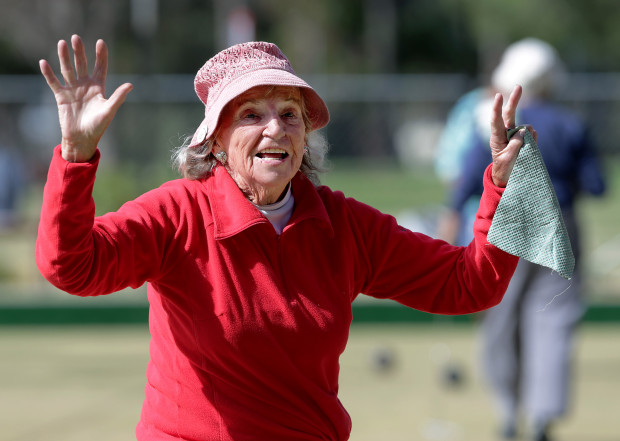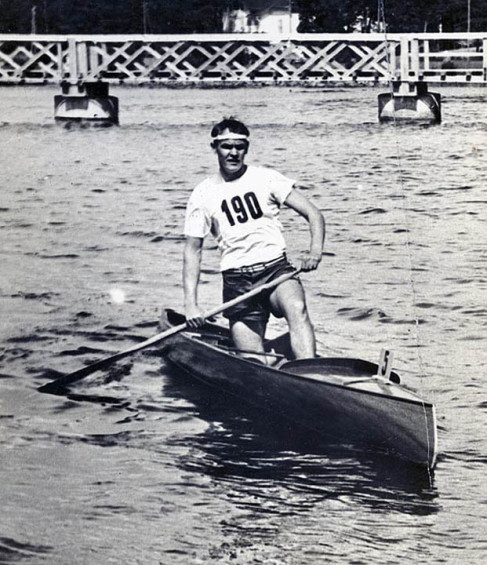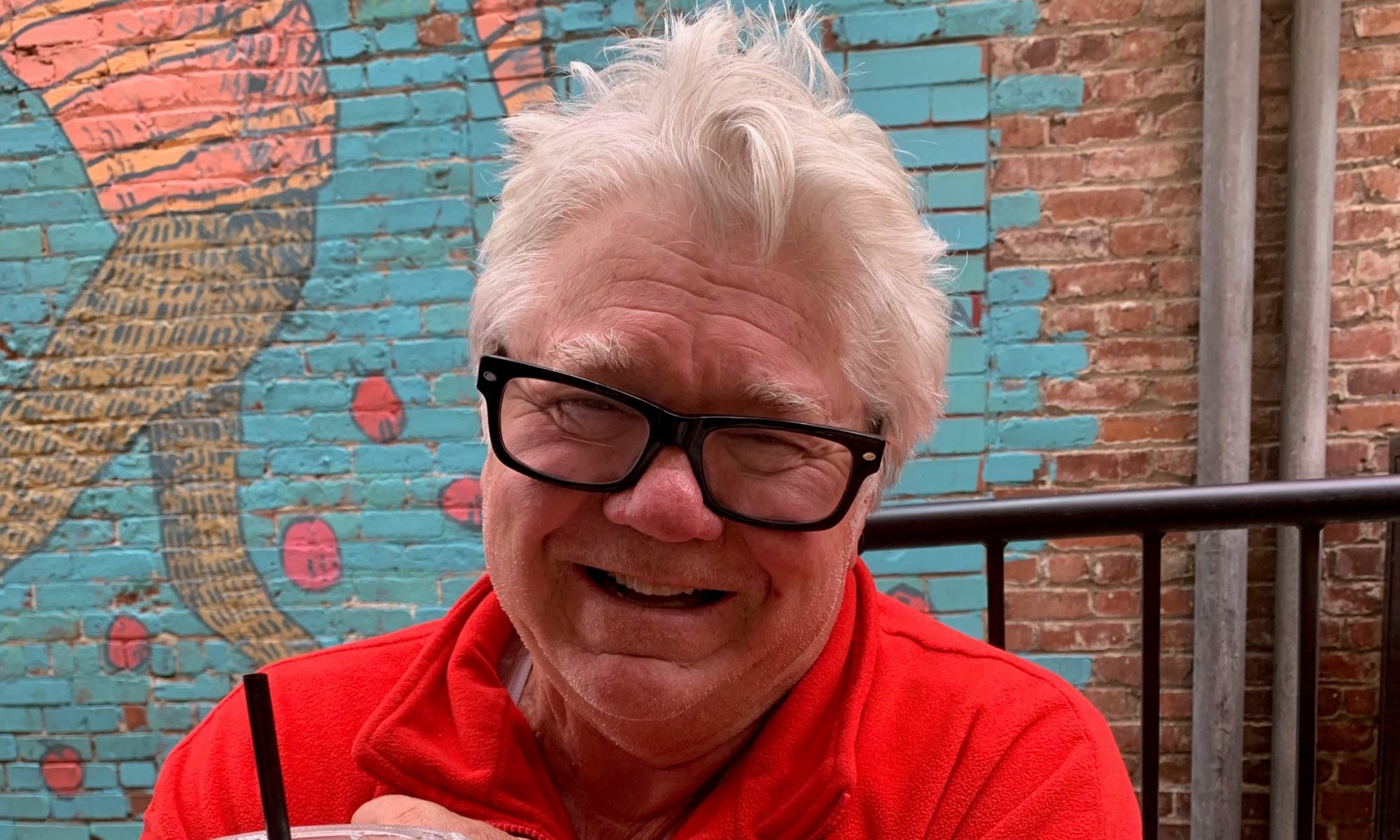A Redlands Connection is a concoction of sports memories emanating from a city that once numbered less than 20,000 people. From pro football’s Super Bowl to baseball’s World Series, from dynamic soccer’s World Cup to golf’s and tennis’ U.S. Open, major auto racing, plus NCAA Final Four connections, Tour de France cycling, more major tennis like Wimbledon, tiny connections to that NBA and a little NHL, major college football, Kentucky Derby, aquatics and Olympic Games, that sparkling little city sits around halfway between Los Angeles and Palm Springs on Interstate 10. – Obrey Brown
She taught at Mentone Elementary School for decades, but Ruth Colley was probably never known by any of her students as an Olympian.
The year, 1952.
It was that year when Colley, qualified and trained, setting herself up for being that rare individual – a U.S. Olympian.
Rare? Ruth DeForest would’ve been the first female Olympian in her sport.
She was Redlands’ Mrs. Tennis – the first woman ever to win that distinction in a city of revered participants – in a sport she was totally devoted to during her years. Throw golf into that mix.
Colley, who married Joe Colley, was a lively gal. Athletically-minded and gifted, she has quite a resume.
One of the original organizers of the Redlands Racquet Club, a tennis-based spotlight that sailed high on the local radar for years.
Tennis, golf, track & field, figure skating, basketball, hockey, but kayaking?
It’s not the first sport that comes to mind when discussing Olympics.
That was Colley’s sport of choice when she, apparently, reached her ultimate goal – qualifying for the 1952 Helsinki Olympics. Ruth DeForest was a canoe-racing specialist who attended Newark State College in the 1950s.
She even had a nickname – Woody. She bowled. Played basketball. She shot as a member of the school’s rifle club.
Kayaking shouldn’t seem all that outlandish. It’s been an Olympic sport since the beginning. Older than other Olympic sports, like basketball.
Training was off campus – there were no facilities at Newark State – so she trekked up to the American Canoe Association Camp. When she entered the National Canoe Races, held in the summer of 1951 on the Charles River in Boston, DeForest took second with her team.
There were 75 entries. Four-boat races. She was the lone female.
She took first in a national Ladies Kayak Race in Washington, D.C. in 1951.
Anyone out there believe that kayaking isn’t a sport? Guess again.
It’s beyond challenging. Those things go from 1,000 to 10,000 meters. In women’s, it’s a 500-meter sprint.
The sport is as old as it is traditional – dating back to the 1870s.
You start thinking: Male dominated.

Chatting her up was a blast. I could interview Ruth Colley for a week – and still not finish the conversation. She had plenty to say, all entertaining, pertinent and valued. The Colley name, Joe and Ruth, appeared in the local paper numerous times, perhaps an Olympic record number of times. Golf, tennis and plenty of other items.
By 2007, she was perhaps finally being recognized. That December, she was named “Living Legend” by the Alliance for Aging Research in Washington, D.C. Plenty of influential people, including Colin Powell, were nominated for that award, according to a local newspaper article.
Colley was living longer and loving it. There was enthusiasm attached to her golf and tennis-playing lifestyle.
She’s an honorary lifetime member of the Washington Canoe Club. There’s a trophy that’s given each year – named the Ruth DeForest-Colley Award.
In 1988, when she could’ve been playing tennis or golf in Redlands, she won four gold and four silver medals in kayaking at the Nike World Masters Games.
But that 1952 Olympic kayak spot was questionable.
She beat all the odds – time requirements, all the rigorous training, winning the qualifying events – to make the trip across the Atlantic.
Michael Budrock (1,000 meters) got to go. So did William Schuette. And Thomas Horton. And John Eiseman, plus John Anderson and Paul Bochnewich, John Haas and Frank Krick.
Footnote: None of those guys won medals.
DeForest could’ve competed in the lone women’s event, a 500-meter sprint, won by Finland’s Sylvi Saimo. Austrian and Russian kayakers took the silver and bronze medals.
By contrast, there were eight men’s events.
Talk about needing a MeToo movement.
Gender equity? There was no such thing.
In a word, DeForest wasn’t allowed to compete. She was a woman. It was a world of, perhaps, chauvinistic men. There were rules. A chaperone was required for a single woman headed to Europe. That was, at least, the excuse given. You get the feeling that, perhaps, the U.S. men didn’t want to be upstaged by a U.S. woman.
No accommodations were made for DeForest in a male-dominated sport.
Frank Havens, the 1948 London Games silver medalist, won the gold medal in 1952. DeForest had trained with Havens, a four-time Olympian.

Some history: Havens’ father, Charles, missed the 1924 Paris Olympics – where he’d been favored to win a medal – to be home with his wife during Frank’s birth.
None of which should’ve meant anything to Ruth DeForest.
No Olympic trip? It was, perhaps, the disappointment of a lifetime. Train for 1956 in Melbourne?
DeForest instead graduated from Newark State in 1954. She got married, settled down with a family and taught elementary school in the Redlands school district. She didn’t stay away from athletics.
Colley taught tennis around Redlands for nearly two decades.
She goes down as the nation’s first female kayaker at a time when they had been shunned from the spotlight.
You get a strong sense that the men-at-the-club had quite a few conversations about keeping this kid from competing. They couldn’t keep her from graduating with a degree of Childhood Science.
Imagine the Redlands Connection if Ruth DeForest had won a gold medal.
